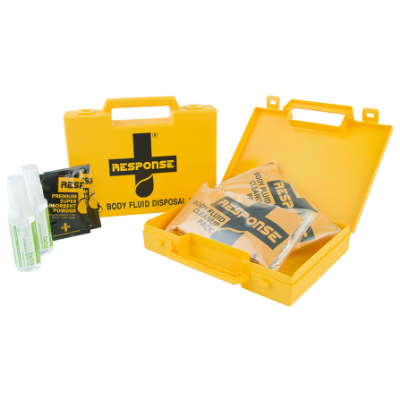The Worst Body Fluid Clean Up Pitfalls Exposed
Cleaning up blood, vomit, urine and faeces is a job nobody wants. Unfortunately, it is a job that thousands of people must contend with on a daily basis, in all manner of environments.
From nurseries and play-schools, through sports and leisure facilities to hospitals, GPs and care homes, retail, stadia, aircraft, cruise ships, prisons and immigration facilities – quite literally everywhere and anywhere.
These incidents may be the result of illness, accidents, protests or violence. They may involve both the dangers of human waste in addition to contaminated sharp objects such as broken glass, syringes, knives or weapons. Unfortunately, the majority of cleanup jobs lack the proper equipment and the understanding to get the job done safely and efficiently. Here are some of the top no-nos when it comes to cleaning up potentially harmful biohazard waste:
- No Gloves – first and foremost, you must wear protective gloves. Non-airborne contaminants are transmitted through direct contact, and so disposable gloves limit cross contamination as well as offering physical protection from germs passing into open wounds or cuts.
- Paper towels – the standard absorbent paper towel is not suitable for handling body fluid waste. Not only will paper towels fail to effectively absorb contaminants, but it will also further spread waste as it is moved about. Paper towels disintegrate easily, increasing the potential for direct human contact or further cross contamination of other surfaces.
- Mop and bucket – a traditional mop and bucket will spread body fluid around a contaminated area as well as deposit more waste into the bucket. Unless the mop itself is disposed of, it will then carry contaminants to other areas where it is used.
- Simple alcohol based antibacterial gels – these will only kill certain bacteria. Body fluid clean up should utilise a broad spectrum biocide capable of killing viruses and bacteria.
- Handling sharps – in situations where broken glass or syringes are part of the cleanup you should never directly handle such objects. Potential for needle stick injuries is high even for diligent cleanup, which is why you should always handle sharps indirectly, for example with forceps or a safe hand.
Fortunately, these pitfalls can be overcome by ensuring your organisation provides a suitable body fluid cleanup kit and/or sharps disposal kit. Such kits include the necessary equipment and instructions to dispose of biohazards safely.
One final point to consider is that not all biohazard disposal kits are created equal. Avoid extremely cheap kits as often these will include very low quality cleanup items, poor absorbent powders and flimsy personal protective equipment. For a product aimed at such an unpleasant job, which is also disposable, it is tempting to opt for the cheapest option. However, a little more investment can offer a significant improvement in safety for individuals undertaking cleanup.
Response Body Fluid Kit

Response, the market leader in biohazard control, offers a range of high quality body fluid, sharps and specialist disposal kits and accessories. Kays Medical stock the full range of response products available online via K2 or over the phone. Simply call 0151 482 2830.